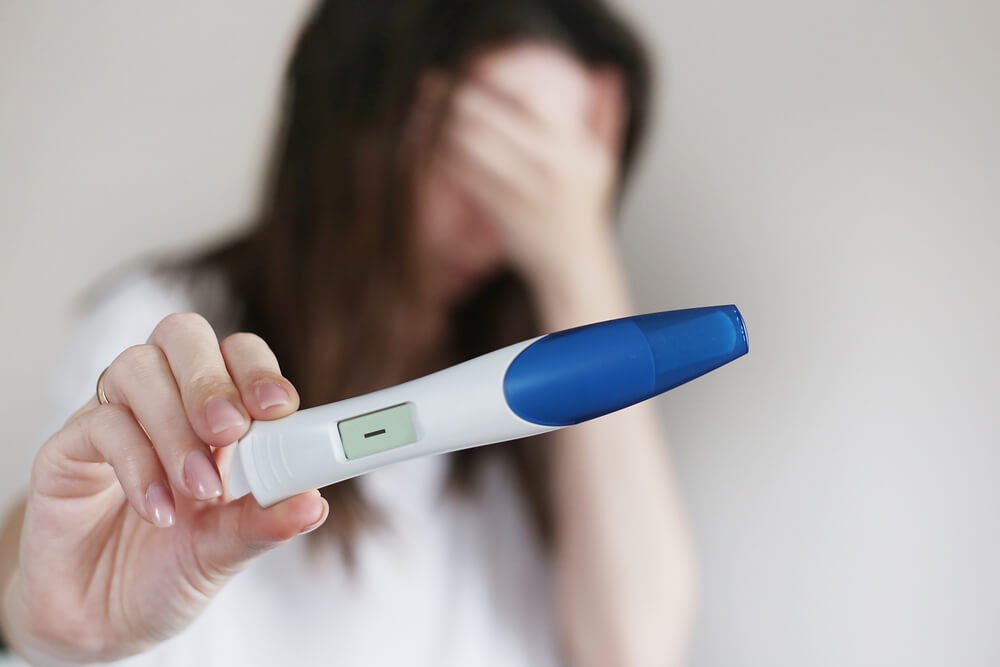Infertility refers to the inability of a couple to conceive a child after a year of consistent, unprotected intercourse. It can affect both women and men. A woman is deemed infertile if she has been actively attempting to conceive for a year without the use of contraception, while a man may be considered infertile if he produces insufficient sperm or if his sperm exhibit poor health, hindering successful fertilization of a woman’s egg. While many couples experience no difficulty in achieving pregnancy, certain factors may pose challenges for others in this regard.
Infertility can manifest in two forms: primary or secondary. Primary infertility occurs when an individual is unable to conceive at all. Secondary infertility, on the other hand, occurs when an individual has previously conceived but is now experiencing difficulty in doing so again.
Causes of Infertility in Male
Common causes of male infertility include issues with semen and sperm. Semen, the milky fluid released during ejaculation, contains both fluid and sperm. The fluid originates from various glands including the prostate gland and seminal vesicle, while sperm is produced in the testicles. Semen aids in transporting sperm towards the egg for fertilization.
Factors that may hinder sperm’s ability to fertilize the egg include a low sperm count (below 15 million), poor sperm motility, or abnormal sperm morphology. Approximately 2% of males may experience such sperm-related issues, which can arise from various factors including medical conditions like testicular infections, cancer, or surgical procedures. Overheated testicles, due to reasons such as an undescended testicle, varicocele, sauna use, tight clothing, or hot working environments, may also contribute to infertility.
Other potential causes of male infertility involve genetic factors such as Klinefelter syndrome, where individuals have two X chromosomes and one Y chromosome, leading to abnormal testicular development and reduced sperm production. Post-pubertal mumps infection, congenital anomalies like hypospadias, and chronic diseases like cystic fibrosis can also impact fertility. Additionally, treatments like radiation therapy or chemotherapy, as well as certain medications such as sulfasalazine and anabolic steroids, may impair sperm production and fertility in males.
Causes of Infertility in Female
Infertility in women can stem from various causes. Issues with ovulation account for approximately 25% of infertility cases in females. Ovulation, the monthly release of an egg, may be disrupted, either with eggs not being released at all or only being released irregularly. Factors contributing to ovulation disorders include conditions such as hyperprolactinemia, where elevated prolactin levels hinder ovulation if the female is not pregnant or breastfeeding, and thyroid problems, which can disrupt hormonal balance and ovulation. Polycystic Ovarian Syndrome (PCOS), a hormonal condition, can also disrupt ovulation and menstrual cycles.
Complications within the uterus or fallopian tubes can obstruct the egg’s journey from the ovary to the uterus, making natural conception more challenging.
Other potential causes of female infertility encompass chronic conditions like AIDS or cancer, primary ovarian insufficiency (POI) where ovarian function declines before the age of 40, and poor egg quality, which diminishes with age and can lead to difficulties in conception or sustaining a pregnancy. Surgical interventions such as pelvic or cervical surgery can result in scarring or damage that affects fertility. Submucosal fibroids, benign tumors in the uterine wall, and endometriosis, where uterine lining cells grow outside the uterus, are also implicated in infertility. Additionally, tubal ligation, a form of permanent birth control by blocking the fallopian tubes, may hinder fertility, although reversals of this procedure often carry limited success rates.

Risk Factors
People mostly asks about the factors that predisposes one to Infertility. Here are some of the risk factors linked with infertility.
- Sexually transmitted infections (STIs): Infections like chlamydia can impair the fallopian tubes in women and cause inflammation in the male scrotum, potentially leading to infertility. Other STIs may also have similar effects.
- Smoking: Tobacco use significantly heightens the risk of infertility in both men and women, and it can diminish the efficacy of fertility treatments. Smoking during pregnancy also escalates the likelihood of miscarriage. Exposure to secondhand smoke has likewise been associated with decreased fertility.
- Chemotherapy: Certain chemotherapy medications can lead to ovarian failure in women or markedly decrease sperm count in men.
- Radiation: Exposure to radiation, particularly targeted near the reproductive organs, can elevate the risk of fertility complications.
- Age: Female fertility typically begins to decline gradually around or before the age of 35, while male fertility tends to diminish after the age of 40.
Furthermore, there are other factors associated with infertility, although research in many cases remains inconclusive. These include:
- Obesity: Being overweight can decrease the likelihood of conceiving for both sexes.
- Stress: High levels of stress, particularly if it leads to decreased sexual activity, can impact ovulation in women and sperm production in men.
- Exercise: Both excessive and insufficient physical activity can contribute to fertility problems in men and women. In men, it may affect sperm count.
- Narcotics: Substance abuse, such as cannabis or cocaine consumption, may reduce sperm count in men, and females using these substances may also experience fertility issues.
- Exposure to certain chemicals: Pesticides, herbicides, metals like lead, detergents, and solvents have been linked to fertility problems in both men and women.
- Nutrition: Poor dietary habits can affect fertility in both men and women. Serious weight loss due to eating disorders may also lead to fertility issues.
- Alcohol misuse: Excessive alcohol consumption may reduce sperm count and interfere with the success of in vitro fertilization (IVF) treatments.
How is Infertility diagnosed?
To diagnose infertility in both males and females, a medical examination will be conducted by the doctor. They will inquire about your overall health and the duration of attempts to conceive. While the doctor will determine the need for additional tests, initial assessments typically involve blood tests to evaluate hormone levels, genetics (for both sexes), and egg quality.
Women may undergo additional examinations, which may include:
- Transvaginal ultrasound: During this procedure, a small latex-covered wand is inserted into the vagina by a medical technician. The wand is connected to a screen that displays images of the uterus and fallopian tubes, allowing the doctor to assess them.
- Hysterosalpingography (HSG): This X-ray involves injecting dye into the uterus to detect any blockages in the fallopian tubes. It is typically performed without anesthesia.
- Pelvic laparoscopy: This surgical procedure, conducted in a hospital setting, involves the insertion of a thin, flexible scope into the abdomen to provide the doctor with a clearer view of the uterus and fallopian tubes. It helps identify any abnormalities such as polyps, growths, or blockages.
For men, the initial test involves collecting a semen sample to analyze sperm count, quality, and motility.
Additional physical examinations for men may include assessing:
- Past injuries to the testicles or penis
- Abnormal discharge from the penis
- Enlargement or swelling of the prostate
- Presence of varicocele (enlarged veins in the scrotum)
- Recent episodes of high fevers
- History of mumps infection
- In some cases, a testicular biopsy may be required to obtain a more comprehensive sperm sample for analysis.
How to Prevent or Avoid Infertility?
This is a very vital question most people ask and there are answers to that, however practicing the factors below does not guarantee a 100% result as infertility can arise from many of the factors explained above.
Men should:
- Refrain from using tobacco, drugs, and excessive alcohol.
- Avoid exposure to high temperatures, such as hot tubs or saunas.
- Minimize exposure to industrial or environmental toxins.
- Incorporate regular exercise into their routine.
Women are advised to:
- Stop smoking.
- Refrain from consuming alcohol and illicit drugs.
- Engage in moderate exercise, ensuring it does not disrupt menstrual cycles.
- Maintain a healthy body weight.
Infertility Treatment
Treatment for infertility is tailored to the underlying cause. In women, treatment options may include medication or surgical interventions. Common medications prescribed for female infertility stimulate ovulation, increasing the likelihood of conception by promoting the production of eggs. Surgery may be recommended to address issues such as fallopian tube blockages or conditions like endometriosis, fibroids, polyps, or scarring that can impact fertility.
Men may undergo treatment involving medication or surgery as well. Medications may be prescribed to address erectile dysfunction or ejaculation issues. Surgical procedures can repair conditions like varicoceles in the testicles or blockages in the sperm-carrying tubes.
Assisted Reproductive Technology (ART)
ART involves various techniques aimed at assisting couples in achieving pregnancy. It is typically considered when other infertility treatments have been unsuccessful. Some ART options include:
Intrauterine insemination (IUI): This procedure involves placing healthy sperm directly into the woman’s uterus around the time of ovulation using a thin tube. It is a relatively simple procedure that can be performed in a doctor’s office.
In vitro fertilization (IVF): IVF is a more complex and costly procedure. It entails stimulating the ovaries with hormones to retrieve eggs, which are then fertilized with sperm in a laboratory. Once embryos develop, they are transferred to the woman’s uterus. While IVF can be successful, there is no guarantee of pregnancy.
Third-party assisted ART: In some cases, individuals may require assistance from a third party to achieve pregnancy. This may involve sperm, egg, or embryo donation, or utilizing a surrogate or gestational carrier who carries the pregnancy on behalf of the intended parents.
Coping with Infertility
Dealing with infertility can be emotionally challenging. The recurring disappointment of unsuccessful attempts to conceive each month can strain relationships and take a toll on emotional well-being. Witnessing others, whether friends, family, or strangers, welcoming babies while facing infertility can exacerbate feelings of inadequacy and frustration. For women undergoing IVF treatment, the emotional impact may be further intensified by the hormonal and egg-stimulating medications used, which can also potentially affect physical health according to long-term studies, possibly linking to conditions such as breast cancer and ovarian cancer.
If you are grappling with infertility, it’s essential to discuss coping strategies with your doctor. Seeking support from a support group can often provide comfort and understanding during this challenging time. Additionally, some couples may explore adoption as an alternative path to parenthood after exhausting attempts to conceive naturally.
Fertility Diet | 8 Diet Tips when trying to Conceive
Strange Pregnancy Dreams: The Reason Behind It
